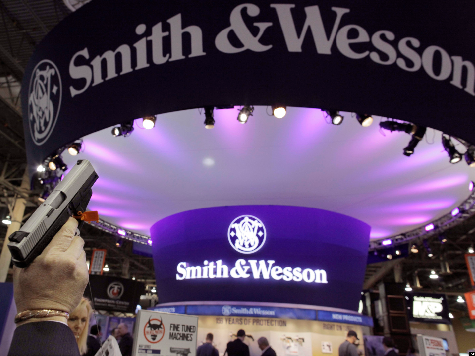
On January 22nd renowned gun maker Smith & Wesson joined Sturm, Ruger, & Co., by announcing it would cease California sales of its semi-automatic pistols due to microstamping requirements that went into effect last year.
Ruger made the same announcement earlier this month.
Microstamping is a requirement that each firearm be fitted with a special firing pin that leaves a fingerprint on a bullet casing which differs from the fingerprint of every other firearm. In other words–every one of the wildly popular Smith & Wesson M&P .45 semi-automatic handguns would have to be manufactured in such a way so that no two of them left the same mark on a shell casing.
The cost of doing this would be incredibly high to manufacturers, and would be a cost they would have to pass on to consumers in higher prices.
Moreover, the result of doing this would be yet another gun registry–every gun sold that met microstamping requirements would have be to registered so that the government knew who owned the gun that left that fingerprint.
On top of these things, micropstamping doesn’t even work–and least not all the time. There are proven problems with the durability of microstamps on firing pins.
So The Washington Times reports that Smith & Wesson is just going to stop selling guns in CA for which microstamping is required.
Smith & Wesson president and CEO James Debney said his company “will continue to work with the NRA and the National Shooting Sports Foundation (NSSF) to oppose this poorly conceived law which mandates the unproven and unreliable concept of microstamping and makes it impossible for Californians to have access to the best products with the latest innovations.”
Follow AWR Hawkins on Twitter @AWRHawkins

COMMENTS
Please let us know if you're having issues with commenting.